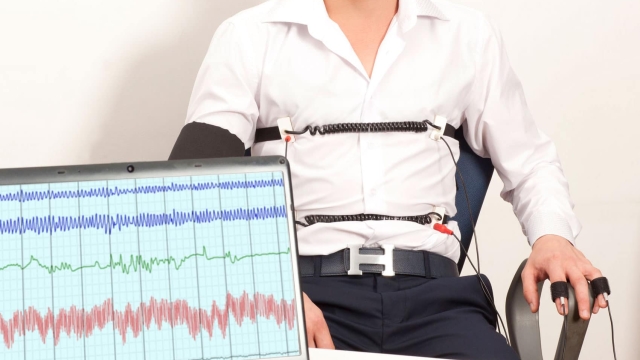
In a world where truth and deception often walk a fine line, the lie detector test has emerged as a powerful tool in unraveling the mysteries of human deception. This technology, which has captivated the public imagination for decades, holds the promise of uncovering secrets hidden beneath the surface of verbal communication. With its ability to measure physiological responses like heart rate, blood pressure, and respiration, the lie detector test is often heralded as a way to separate fact from fiction in the search for truth. Yet, behind the allure of its perceived accuracy lies a debate that continues to divide opinions on its reliability and utility in various settings.
Benefits of Using Lie Detector Tests
Lie detector tests offer a non-invasive way to determine truthfulness by analyzing physiological responses. This can often provide valuable insights into whether someone is being truthful or deceptive, aiding in investigations.
One of the key benefits of using lie detector tests is the ability to uncover information that may otherwise remain hidden. By measuring changes in heart rate, blood pressure, and other physical indicators, these tests can reveal deceptive behavior that verbal responses alone might not expose.
Furthermore, lie detector tests can be a valuable tool in resolving disputes or accusations, helping to bring clarity and closure to contentious situations. The insights gained from these tests can play a crucial role in enabling parties to move forward with confidence and resolve conflicts effectively.
Limitations of Lie Detector Tests
One major limitation of lie detector tests is their susceptibility to errors, particularly when individuals are able to control their physiological responses. For instance, experienced liars or individuals with certain psychological conditions may be able to manipulate their heart rate, blood pressure, or skin conductance levels to deceive the test.
Furthermore, the accuracy of lie detector tests can be influenced by external factors such as the skill and interpretation of the examiner. In some cases, subjective judgments by examiners can lead to false results, highlighting the importance of proper training and standardized procedures to minimize errors.
Lastly, the reliability of lie detector tests can be affected by the emotional state of the examinee. High levels of anxiety, stress, or fear during the testing process can impact the physiological responses measured by the polygraph, potentially leading to misleading results.
Polygraph
Controversies Surrounding Lie Detector Tests
While lie detector tests have been used for decades, their reliability and accuracy have long been a subject of debate. Critics argue that these tests lack scientific validity and can be influenced by a variety of external factors, leading to potential inaccuracies in their results. Additionally, some experts question the ethical implications of relying on these tests to determine the truth, highlighting concerns about privacy and individual rights.
One of the main controversies surrounding lie detector tests is their vulnerability to manipulation and inaccuracies. Factors such as the subject’s emotional state, the skill of the examiner, and the testing environment can all impact the test results, casting doubt on the overall reliability of the findings. This raises questions about the use of such tests in legal proceedings and employment screenings, where the stakes are high and the consequences of false outcomes can be significant.
Moreover, there is ongoing debate about the physiological basis of lie detection and whether the technology used in these tests is truly capable of accurately identifying deception. Some argue that the polygraph, the most common form of lie detector test, measures physiological responses that can be influenced by stress or anxiety rather than deception itself. As advancements in technology continue, the controversial nature of lie detector tests persists, calling into question their place in modern society.



